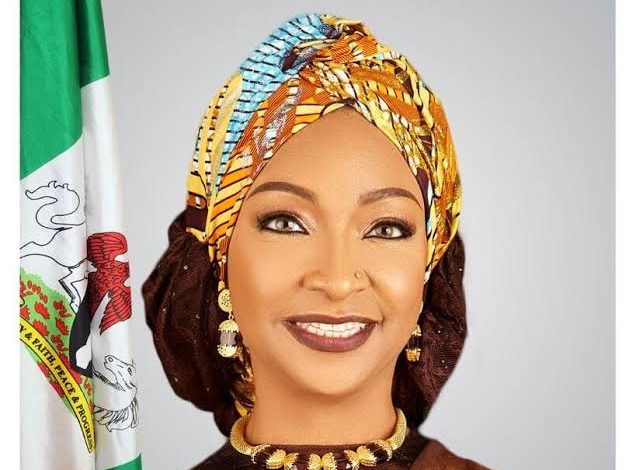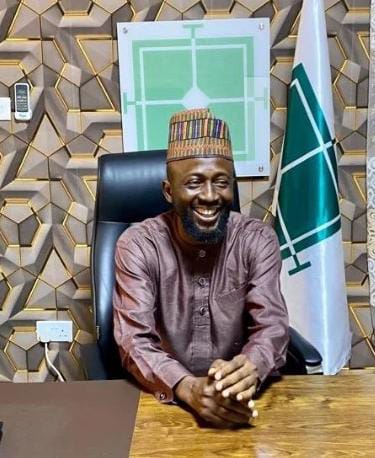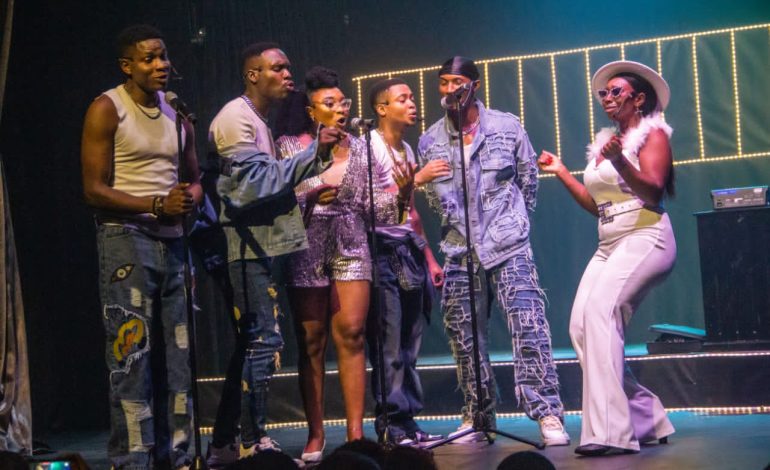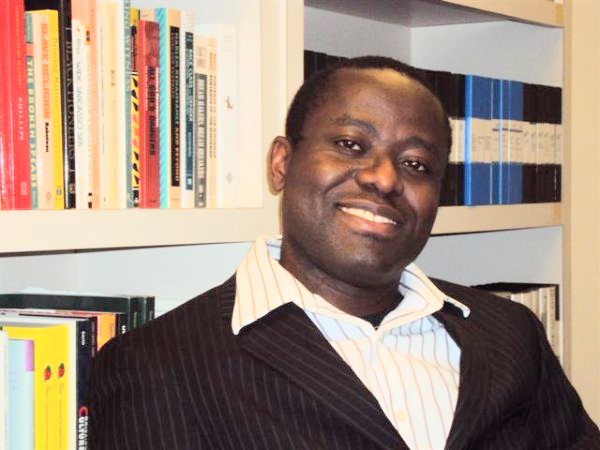iREPS’ ‘Righting the Future’ in March kick-starts Nigeria’s culture festival calendar 2024

* Isoko International Film Festival joins Nigeria’s festival train
* Governors’ interventions as graveyards of festivals
* Government must intensify efforts to alleviate hardship facing Nigerians, says ANA President, Akanbi
By Anote Ajeluorou
NIGERIA’S cultural landscape continues to experience some level of vibrancy in spite of the difficult economic situation the new government of Mr. Bola Tinubu unleashed on the largely pauperised citizenry. Unplanned fuel subsidy removal and floating of the foreign exchange (forex) further reduced the spending power of citizens to patronise cultural offerings. Nevertheless, the resilience of Nigerians still came to the fore to save what was already a disastrous second half of 2023. But the usual elastic spirit of accommodation of all manners of bad policies by successive governments, which paradoxically is the reason for the continued slide in national fortunes, came to the rescue of Nigerians, and the culture sector particularly.
Like previous years, iREPRESENT International Documentary Film Festival (iREP 2024) will be held in March. Organisers have put out a call notice for documentary filmmakers to send in their entries for the festival that has ‘Righting the Future’ as theme. It’s also the celebration edition of Wole Soyinka @90, also a filmmaker. The festival’s theme presupposes some wrongs in the past that need to be corrected, with Africa’s narrative strengths and stylistics being major concerns to watchers of the continent’s cinema space. With global streaming platforms asking for more stories from the continent, perhaps it’s time Africa’s storytellers rose up to the challenge and fill the vacuum ancient folk storytellers left for succeeding generations.
Sadly, the Creative Industry Commission Bill that some persons in the Muhammadu Buhari presidency were canvassing failed to see the light of day before the administration left office. It was the case of a good policy ill-conceived or ill-timed, as efforts to get the buy-in of stakeholders ended becoming a jamboree. Although the intention was good, it would have further compounded an already bloated government’s purse with yet another commission in an era where lean governments are being canvased. But it was no surprise that the federal government yet again failed to rise to the needs of the creative industry with the Creative Industry Commission.

Minister of Arts, Culture and Creative Economy, Hannatu Musawa
Clearly, government’s poor understanding of what culture stands for or offers will continue to be subject of fruitless debates, because even culture producers within government have either perennially failed to educate government accordingly or perhaps profited from such poor appraisal. It also raises the critical question of who gets into what ministry, whether state or federal, as staff. Should ministry just be another job without concomitant expertise in a given field? Shouldn’t staffers be persons versed in the specific field of a ministry, so they understand the needs of practitioners the ministry supposedly caters for and respond to their needs appropriately? However, Nigeria’s quota system and other extraneous considerations other than expertise and competence, watchers have said, will continue to mitigate against development in all areas of national life.
Edo State Government perhaps made the only meaningful intervention in supporting the culture sector in the country in 2023. From film to music and book and art festivals, the state made significant commitment that warmed the hearts of culture makers from that part of the country. There was Edo International Book and Arts Festival, Edo State International Film Festival and the state’s yearly Alaghodaro Food Fair and Alaghodaro Economic Summit. These cultural offerings elevated the involvement of practitioners in Edo State and gave them something to cheer. But with the administration of Governor Godwin Obaseki soon to leave office this year, what becomes the fate of these festivals? Will the new man or woman see the necessity of these festivals and continue with them or will they suffer similar fate of sudden death, as it happened in others states?
However, Governor Obasseki’s support for the arts comes with a price – the price of neglecting the Oba Akenzua Cultural Centre on Airport Road, designed by one of Africa’s famous architects and artists, Pa Demas Nwoko. The newly repurposed state-owned The Observer newspaper premises that now houses the Sir Victor Uwaifo Creative Hub is the government’s preferred venue for all state-sponsored culture programmes while the old venue, also state-owned, is in unbelievable ruins. The Oba Akenzua Cultural Centre was designed with Afro-centric architectural philosophy in mind. IT was designed to be highly aeriated without the need for air-conditioning or lighting in daytime and very much unlike the tunnel that the Sir Victor Uwaifo Creative Hub is. Its abandonment is a disservice to Africa’s cultural sensibility, with the chance to promote modern African indigenous architecture irretrievably being lost.
Successor governors inheriting cultural programmes have proven problematic in Nigeria across the states. Dr. Aliyu Babangida left office as Niger State governor and Minna Book and Arts Festival that he instituted died. Rotimi Amaechi left office in Rivers State as governor and his state-sponsored Port Harcourt Book Festival died. Ibikunle Amosun left office as Ogun State governor and Abeokuta Drum Festival he established died. Babatunde Fashola left office as Lagos State governor and the Lagos Black Heritage Festival he set up died. Dr. Olusegun Mimiko left office as Ondo State governor and his Mare Festival died. Nasir el-Rufai left office as Kaduna State governor and the Kaduna Book and Arts Festival he initiated died while the Aso-Ofi Festival Abiola Ajumobi instituted in Iseyin died as soon as he left office as Oyo State governor. Only Calabar Christmas Carnival, instituted by Governor Donald Duke, has survived the harvest of deaths of cultural fiestas either established or supported by state governors. Successive governors of Cross River State have kept faith with the vision of Duke, a feat that should be applauded and emulated. Will Edo State be different in sustaining the cultural fiestas currently being supported by Governor Obaseki by succeeding governors? Only time will tell.
What these serial failures of state governors’ interventions point to is that governments at all three tiers – federal, state and local – should not be directly involved in instituting or organising festivals or fairs. They should organise seminars and conferences instead that set guiding policies and regulations for the sector. More importantly, governments should emulate what governments elsewhere do by making laws that provide yearly budgetary provisions for arts and culture. Governments’ agencies saddled with such responsibility should then receive proposals, identify organisations and groups with genuine culture programmes, support them with funding and make sure the organisations utilise the funds judiciously for assigned purposes. Ironically, the culture sector has forged on regardless of government’s indifference and total neglect even when the Bureau of Statistics says the sector currently employs the largest chunk of youth population.
In 2023 Association of Nigerian Authors (ANA) finally put its house in order with a surprisingly peaceful election that threw up mainly academics filling the top three positions of president (Dr. Usman Akanbi), vice president (Dr. Obari Gomba) and secretary (Prof. Joan Orji). And consistent with old ANA interventionist culture in national politics that has been lost for some years now, Akanbi has set a wholesome tone by making a statement on state of the union in the new year. Akanbi first addressed his fellow writers before delving into national maters.
In his New Year address to his fellow writers titled ‘Lightening the Path to Progress in 2024’, Akanbi said, “Dear Esteemed Members of the Association of Nigerian Authors (ANA), in 2023, ANA witnessed a historic milestone—the smooth transition of power from one executive to another. Despite initial concerns about potential chaos during the elections, thanks to the resilience of our members, particularly the longstanding ones, the process unfolded seamlessly, a testament to Divine Grace.
“Since assuming office, the current executives have worked diligently to steer ANA back to its esteemed position. Though some legal challenges persist, we are resolute in putting an end to these unnecessary distractions, recognising that a harmonious environment is crucial for realising the association’s founding objectives.
“My heartfelt gratitude goes to members who have contributed to stabilising ANA, but the journey continues. I urge every member to join us in making ANA a beacon not only in the realm of creative arts but as an exemplary association for progress. Let us collectively lighten the dark corners of our Association, confident that the flame we ignite today will endure long after our tenure.”
And at the national level, Akanbi addressed the existential challenges facing Nigeria and the need for leaders and the led alike to be resilient and collaborate for a better country, “Acknowledging Resilience and Encouraging Collaboration for a Prosperous New Year. As we bid farewell to 2023 and welcome the dawn of a new year, I extend my heartfelt commendation to our esteemed President Bola Ahmed Tinubu and the government, both at the Federal and State levels, for their dedicated efforts in steering our great nation.
“In the face of various challenges, the resilience displayed by the citizens of Nigeria has been remarkable. I commend all Nigerians for their strength and perseverance during these trying times. It is this enduring collective spirit that forms the foundation for our nation’s progress.
“While acknowledging the strides made, I appeal to our government to intensify effort to alleviate the hardship faced by the general populace. Let us work collaboratively towards revitalising our economy on all fronts, ensuring that the benefits of progress reach every corner of our diverse society.”

Newly elected Assocuation of Nigerian Authors’ president, Dr. Usman Akanbi
October last year saw an academic Dr. Obari Gomba of the University of Port Harcourt winning The Nigeria Prize for Literature 2023 in the drama category, the biggest prize in the country’s culture sector. Gomba’s winning play Grit was performed on December 17 in his home city, Port Harcourt. Lagos and Abuja will next host the performance of the play. Gomba shared the podium with his counterpart at the University of Uyo, Akwa Ibom State, Dr. Eyo Etim, who won The Nigeria Prize for Literary Criticism 2023.
Indeed, 2023 saw an upsurge of film festivals in other state capitals apart from Abuja and Lagos. Most state capitals, from Benin City, Jos, Bauchi, Kano, Enugu, Warri, Uyo to Owerri, now host film festivals. This is understandable; film is the pop culture genre that not only has a lot of practitioners, but which produces stars. With streaming platforms like Prime, Amazon, Showmax and Netflix, film has acquired cult followership. However, book festivals came a distant second place, with Lagos being the hotspot. From the 25-year old Lagos Book and Art Festival (that already has a theme: ‘Breakout: Hope is a Stubborn Thing’ that possibly mimmicks the ‘Renewed Hope’ agenda of the man in Aso Rock), Quramo Festival of Words, MUSON Art Festival, Lagos Fringe Festival, Lagos International Poetry Festival to Ake Arts and Book Festival. Theatre made a modest showing with Abuja International Theatre and Awards Festival in Abuja and the national convention of National Association of Nigerian Theatre Arts Practitioners (NANTAP) that took place in Akure, the Ondo State capital.
These festivals and more shaped Nigeria’s cultural landscape in 2023. Festival lovers will look forward to them again this year. And it’s expected that more festivals will be instituted to animate the country’s cultural scene. For instance, ace movie producer and director Mr. Zeb Ejiro (OON) has assembled a cast of moviemakers and cultural producers to institute Isoko International Film Festival in Delta State. The festival will cater to filmmakers producing films in indigenous, minority languages of the world and be a vibrant film market and training ground for youngsters looking to films as a possible career path. And Mr. Ejiro and his team have carefully located the festival away from the usual busy state capitals and cities to the minority communities of Ozoro and Oleh, where the danger of language extinction appears all too real. Isoko International Film Festival promises to be a testament to diversity and inclusiveness of voices within the cinematic landscape, the organisers have promised.
Instructively, 2023 ended with two telling musical theatre shows that gave stage lovers moments to reflect on a country’s journey to nationhood. Saro the Musical by Bolanle Austen-Peters and Kakadu by Uche Nwokedi are memorable stage pieces. With Saro, the question arises as to the centralisation of a nation’s economic life in one city or in cities, with the attendant needless rural-urban migration of young people who cannot find meaningful livelihoods in their original places of birth. Kakadu asks questions about the undying ghost of the Nigerian Civil War and why many are yet to find closure to that tragic past. With successive Nigerian governments in denial of that national tragedy, it will take a long while yet before closure could be found for it. The broader questions to it is: How do you build a nation without addressing perceived past wrongs?



